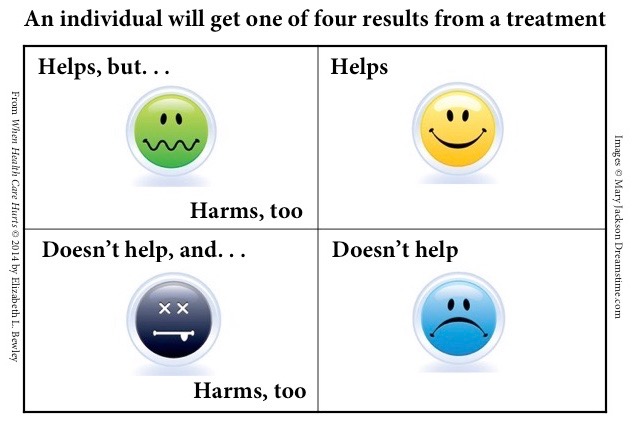Four core ideas inform much of Elizabeth Bewley's work:
 |
- The role of the individual (patient) in improving health has changed radically over time, but the health care system has failed to adapt accordingly. See Three Eras of Health Care.
- Medical treatments result in the intended benefits for some of the people some of the time, but any given treatment doesn't work for everyone, and almost every treatment can cause side effects or complications that may outweigh its benefits for many people. See Four Box Model for Outcomes.
- Health care often behaves as if its goal is to deliver tests and treatments. A more useful goal for health care would be to enable people to lead the lives they want. See The Goal of Health Care.
- The health care system saves or improves millions of lives each year. Shockingly, it is also the leading direct cause of death in the United States. Because this statement will simply sound bizarre if you are not familiar with the data, I provide a detailed calculation to explain what leads to this conclusion. See The Leading Cause of Death in the United States. Because of this reality, it is important that people understand the risks involved in engaging with the health care system so that they can get the great benefits it can confer while reducing the risks involved.
These ideas in the linked articles above above are lightly edited extracts from When Health Care Hurts by Elizabeth L. Bewley. References to end notes that appear as superscript numbers in the extracts refer to the original end note numbers in the book. Endnote numbering is identical to end notes in the book, hence the large numbers and large gaps between them.